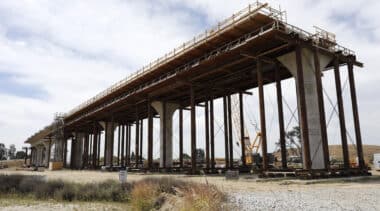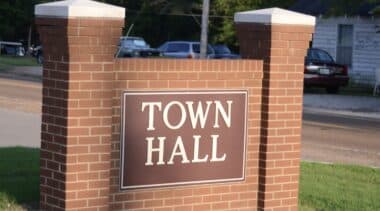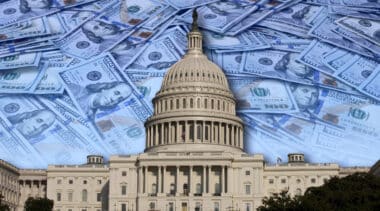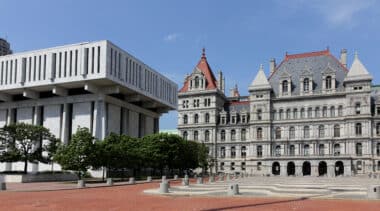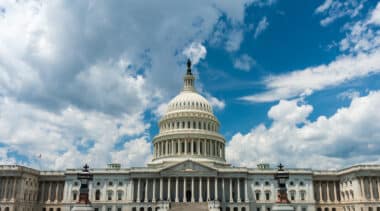Marc Joffe is a senior policy analyst at Reason Foundation.
After a long career in the financial industry, including a senior director role at Moody's Analytics, Joffe's research focuses on municipal finances, alternative asset investments, transportation policy and federal, state and local fiscal policy.
His financial research has been published by the California State Treasurer's Office, UC Berkeley, the Mercatus Center at George Mason University, California Policy Center, The Center for Municipal Finance, and the Macdonald-Laurier Institute among others.
Joffe is a regular contributor to The Orange County Register and his op-eds have also appeared in The Fiscal Times, Governing, National Review, The Hill, and The San Jose Mercury News.
Joffe recently presented a panel paper at the APPAM 42nd Annual Fall Research Conference along with University of Texas, Dallas Associate Professor Evgenia Gorina and his Reason colleagues Anil Niraula and Jen Sidorova.
He has an MBA from New York University and an MPA from San Francisco State University.
-
Recent Inflation Figures Should Not Be Ignored by Policymakers
Policymakers should be cautious about adding more to the national debt and the money supply.
-
Supreme Court’s Fulton v. Philadelphia Decision Will Offer Children in Foster Care More Placement Opportunities
The Supreme Court ruled that Catholic Social Services can continue placing foster children in Philadelphia despite its refusal to work with same-sex parents.
-
Honolulu Rail Project’s Delays and Rising Costs Should Be Cautionary Tale for Cities and Congress
Honolulu's rail project is now expected to cost twice as much as originally planned and be completed at least 10 years later than promised.
-
The Foster Care System Needs Reform
More attention should be paid to shortening the time children spend in the foster system.
-
The United States Postal Service Should Not Offer Banking Services
It is hard to see how the U.S. Postal Service could effectively compete in this environment, let alone what value it might add.
-
The California High-Speed Rail Project’s Negative Impacts on Minority Communities
As the Biden administration and urban planners revisit the influence transportation construction has had on minority neighborhoods, they should also take seriously the similar problems the California high-speed rail system is creating today.
-
How Local Government Names Make It Difficult to Monitor Their Spending and Other Data
Taxpayers, lawmakers and researchers need a broadly accepted, reliable, and comprehensive way to identify local governments and their data.
-
Private Equity Returns Stumbled in 2020, Hurting Public Pension Plans
Public pension systems should be concerned about private equity's high fees and potential to hurt asset performance.
-
COVID-19 Pandemic Response Illustrates Need for Better State and Local Financial Data
If every state, major city, and county produced monthly cash reports in a standardized, machine-readable format within two weeks of month-end, federal policymakers would have a much better picture of how revenues and expenditures are evolving.
-
More Census Data Shows Government Tax Revenue Hasn’t Been Negatively Impacted By COVID-19
The Census Bureau estimates 2020 aggregate state and local tax revenues of $1.62 trillion, or about 2 percent above the 2019 total of $1.59 trillion.
-
High-Speed Rail Is Unlikely to Play a Major Role In Achieving Climate Goals
Be wary of high-speed rail's potential to fight climate change or replace automobile and air travel in cost-effective ways.
-
How to Spend Stimulus Money to Reduce State and Local Retiree Health Care Debt
Rather than create new spending programs, state and local governments would be wise to use the largely unnecessary federal funds coming their way to pay down debt.
-
Most Local Governments’ Tax Revenues Haven’t Been Hit Hard By COVID-19 Pandemic
Local government revenues have largely remained stable during the COVID-19 pandemic due to their reliance on property tax revenue.
-
A Not-So-Simulative COVID-19 Stimulus Bill
The costly, ill-timed and poorly targeted COVID relief measure now in Congress is unlikely to achieve its goals.
-
New York State’s Other Post-Employment Benefit Problem
New York's public sector entities have more than $300 billion of unfunded other post-employment benefit liabilities.
-
Debatable Ideas: Examining Key Transportation Issues, Myths and Misconceptions
In this series, Reason's transportation policy analysts examine key infrastructure issues, including common myths and misconceptions found in today's policy debates.
-
House COVID-19 Stimulus Bill Has Big Differences In Per Capita Money Going to States
The allocation formula used by the legislation benefits low population states and those that had high unemployment rates at the end of last year.
-
Survey of State & Local Government OPEB Liabilities
State and local governments have $1.2 trillion in net OPEB (other post-employment benefits) liabilities.






